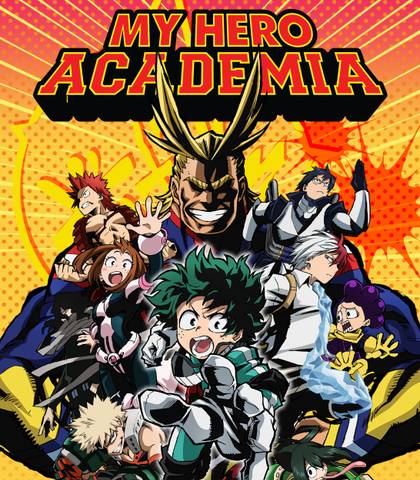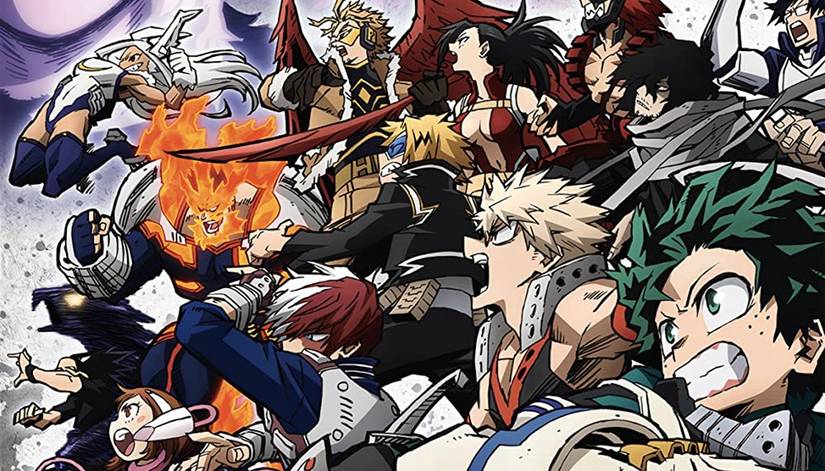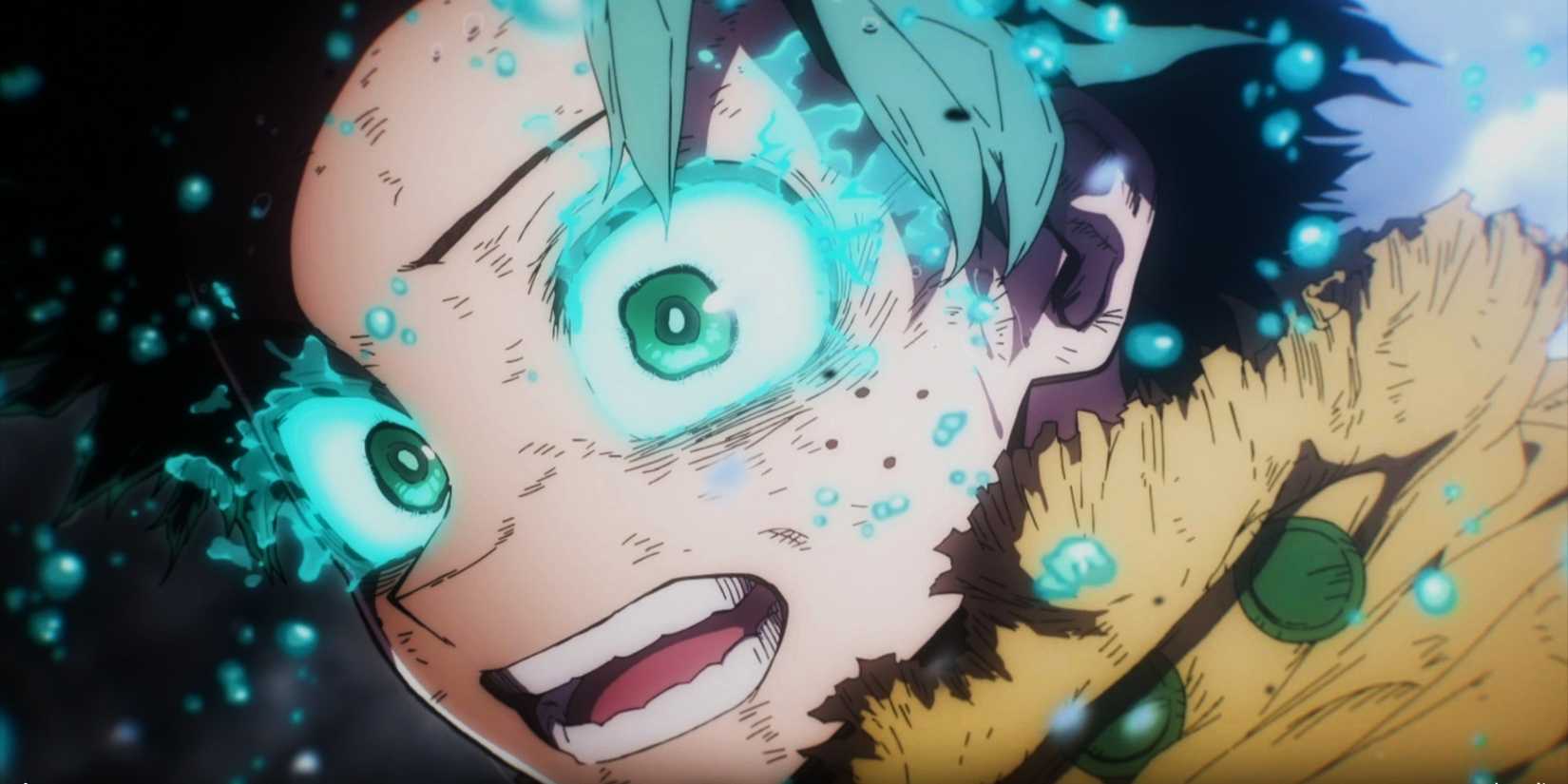For nearly a decade, My Hero Academia’s anime has earned the title of one of the most popular and most viewed modern shōnen titles. Fans around the world had eagerly followed every new manga chapter and anime season, drawn in by the story’s characters, thrilling battles, and emotional arcs throughout the narrative.
However, with the anime’s final season underway, there has been a noticeable difference in momentum compared to previous seasons and other anime of the same caliber. While each episode remains visually stunning and the narrative itself is well-crafted, there is a lack of excitement and buzz. For a franchise that once stood among the top titles, the shift is surprising.
My Hero Academia Is Among Anime’s Most Popular Titles
My Hero Academia, created by Kohei Horikoshi, first aired in 2016 and quickly became one of the most defining modern shōnen anime. Taking place in a world where heroism has become a commercialized career path and the vast majority of society possesses superpowers known as Quirks. The story centers on Izuku Midoriya, a Quirkless boy who inherits One For All.
From the beginning, the series has effectively captured audiences’ attention with its emotional undercurrents and cinematic battles. Horikoshi’s take on hero society and tropes helped propel the series into global fame, gaining millions of fans. My Hero Academia attracted both newcomers and longtime anime watchers, making it the entry point to the medium for many viewers.
Plenty of viewers often grouped the series, along with Demon Slayer and Jujutsu Kaisen, as part of the “New Gen Big Three,” as the series became an anime pillar in the 2010s. The label reflected its excellence as a series, with a solid narrative structure, cinematic sequences, and well-rounded central characters.
However, upon the release of its eighth and final season on October 4, 2025, it has been met with a noticeable disparity in popularity and excitement. Streaming exclusively on Crunchyroll, new reports have shared that the series is not performing well in comparison to its solidified status as an anime powerhouse.
My Hero Academia’s Final Season Isn’t Meeting Viewership Expectations
When My Hero Academia’s seventh season premiered on May 4, 2024, expectations were immense. As the series approached its final chapter, fans waited for emotional payoffs and high-stakes confrontations that had been brewing since Season One. Over the months, the penultimate season builds toward several climactic confrontations, including Shigaraki versus Deku and All Might versus All For One.
By October 12, 2024, the seventh season closed with a dramatic cliffhanger that left major battles yet to be resolved and the fate of some characters uncertain. Despite the suspenseful ending, the momentum for the series hadn’t translated into the viewership numbers that many might expect for My Hero Academia’s final season.
Premiering October 4, 2025, Season Eight has already aired three episodes, yet the buzz surrounding the series and fan engagement feel muted in comparison to the previous seasons. This is reflected in Crunchyroll’s popularity rankings, with the final season currently sitting in the twenty-fourth spot. Even though the stakes are at their highest they’ve ever been, the series remains surprisingly low.
When considering the widespread appeal, influence, and momentum behind a series like My Hero Academia, one might expect the series to reach a higher ranking on the streaming platform. Instead, following the cliffhanger at the end of Season Seven, Season Eight seems to be struggling to recapture the same viewership as previous arcs.
My Hero Academia Suffers From Too Many Characters and Subplots
As My Hero Academia approaches its finale, the scope of the story has expanded dramatically, attempting to encapsulate each of its characters in meaningful ways. The Final War, rather than focusing on key characters that both the storyline and fans had invested in, attempts to balance its large cast in a way that results in fragmented storytelling.
The final battles took place across multiple locations, forcing the series to frequently cut between stories, dulling the overall impact. The intention may have been to convey the chaos of an all-out war; however, it took away from the emotional tension and interrupted central scenes before they could fully land, minimizing the overall payoff.
My Hero Academia always had a large cast, yet the series never suffered from it too much due to its centralized focus on key characters, interactions, and developments. While the story’s ambition was admirable, ending the series with several subplots revolving around background characters dampened the overall narrative and created uneven emotional climaxes.
With so many heroes and villains needing closure, not every storyline received the space it deserved, with some falling short while others extended too long. This, paired with the timing of the series’ finale, likely contributed to the decline in viewership for the final season, leaving the anime’s conclusion to fall flat in comparison to previous releases.
The Anime Entered Its Final Arc Around The Same Time As My Hero Academia’s Manga
Perhaps the most overlooked factor behind My Hero Academia’s decline in momentum is its timing. The manga’s final chapter was published in August 2024, with its concluding volume following in December 2024. The finale took place during the penultimate season and was released a year before the anime’s finale began to air.
This close gap between the manga and anime finale leaves little breathing room for anticipation to rebuild for the story. When an anime follows its manga too closely, it might detract audience enthusiasm, especially those who may feel fatigued by seeing similar material twice in such quick succession.
By releasing the final season less than a year after its manga counterpart, My Hero Academia offered fans nearly no time in between conclusions.
Rather than reigniting and building anticipation for the anime finale, the series had arrived at a time when the story’s emotional impact was still settling. For example, Demon Slayer’s manga ended in May 2020, yet its final film trilogy remains in production, likely until 2029. Similarly, Naruto’s anime adaptation concluded in 2017, three years after the manga.
By releasing the final season less than a year after its manga counterpart, My Hero Academia offered fans nearly no time in between conclusions. The series’ timing may have contributed to a dimmed reception among fans for what should have been a stronger spike in viewership, raising the series’ popularity ranking higher than it currently stands.
The decline in viewership and less fan excitement for the final season stems from a combination of factors. These include multiple subplots, an extensive cast, and overall timing. While the series remains stellar as ever, the final season of My Hero Academia has been struggling to recapture its former momentum.

- Movie(s)
-
My Hero Academia: Two Heroes (2018), My Hero Academia: Heroes Rising (2019), My Hero Academia: World Heroes’ Mission (2021)
- First Film
-
My Hero Academia: Two Heroes (2018)
- Cast
-
Daiki Yamashita, Kenta Miyake, Nobuhiko Okamoto, Ayane Sakura, Yûki Kaji, Aoi Yuki, Kaito Ishikawa, Toshiki Masuda, Marina Inoue, Yoshimasa Hosoya
- TV Show(s)
-
My Hero Academia
- Video Game(s)
-
My Hero Academia: Battle for All, My Hero One’s Justice, My Hero One’s Justice 2
- Character(s)
-
Izuku Midoriya, All Might, Katsuki Bakugo, Ochaco Uraraka, Shoto Todoroki, Tsuyu Asui, Tenya Iida, Eijiro Kirishima, Momo Yaoyorozu, Fumikage Tokoyami





